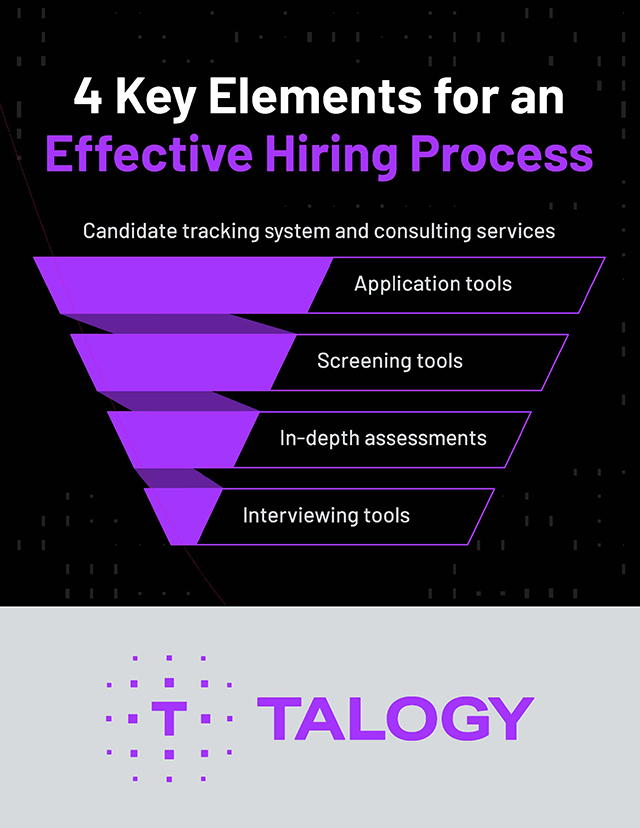Sales hiring is no easy task for a sales leader. Whether you are building a sales team from the ground up, expanding your current team, or restructuring all together, sales hiring requires a unique set of traits to be measured before bringing someone new into the organisation. If you’re in the process of building a sales team and you keep asking yourself if you should be hiring for potential vs experience, you’re asking the wrong question. I’ve been in sales roles for over thirty years, and I’ve seen time and time again that in most cases you need both for different reasons.
Experience: Not always the quick fix
In sales hiring, experienced candidates bring their fair share of assets to the role. They have the battle scars and are not disillusioned by a deal that hasn’t come to fruition. Believe me, I’ve probably left hundreds of lost deals littering my floor over a successful career. Experience has taught me how to navigate a sales cycle, manage a pipeline, and close under pressure without flinching. Being ghosted becomes part of the job and you learn how to pivot without panicking.
When you need immediate results, most hiring managers will debate whether to hire for potential vs experience and opt for a seasoned professional. These are the hires that can immediately step into uncertainty and find a way to get it done. They get up to speed quickly and ask the right questions to shorten the sales cycle; earning revenue and commissions quickly.
I’ve seen a lot of experienced sales reps come and go but it is key to understand that not all experience is created equal. 10 or 15 years in sales may sound impressive, but it doesn’t automatically equate to the person being a high performer. Organisations pay a premium for tenure when it comes to sales hiring, so be careful on who you choose to place your bets.
Potential: The long game
Hiring for potential can be tricky and unpredictable, but also incredibly successful. I’ve found that many reps classified as high potential are the aggressive and hungry ones. They ask a lot of questions, but more importantly, they listen, take feedback, and use this knowledge to generate revenue.
The trade-off in sales hiring when opting for potential over experience is that they’ll likely make mistakes initially and take longer to get up to speed which means a longer lag between hire and profitability. But in the end, if you hire the right individual with potential, it may be one of your most strategic moves and an overall smart investment for continued growth.
Is experience or potential better for your team?
Over the years, what I’ve seen work best is a balance of the two. Think of it like an investment portfolio. Most financial advisors wouldn’t recommend you go all-in on crypto or put everything into municipal bonds but instead strike a balance with your investments. Too many hires with potential, and you could be one business quarter away from a somber discussion with the board. Too much experience and your team can stagnate or get too comfortable.
When you blend both, I find that the result is a motivated team with passion. Let experience mentor potential and let potential challenge experience. Both levels of tenure need to show up every day with curiosity, accountability, resilience, and ownership. Also, when hiring for experience vs potential, be confident that your hires fit within the company culture. Sales assessments such as Talogy’s Caliper help you spot the best matches for your organisation early before someone’s polished CV slips toxic habits into your team.
How to succeed in sales hiring
Sales hiring is an art and must be approached strategically to build a high performing team that both drives results now and scales later. Experience gives you the foundation, potential injects energy, and you need both if you want a team that produces great results. So, when contemplating hiring for potential vs experience, know that a truly impactful and successful sales team requires striking a balance between the two, appreciating that both groups have something unique to bring to the table.

Four key elements for an effective hiring process
Effective hiring requires strategic planning.
How can you ensure that your end-to-end screening and selecting process will ensure you’ll end up hiring the best talent for your roles, while also providing an engaging and thorough candidate experience?
Our infographic illustrates the four key steps an organisation can take to support a smooth and successful hiring process regardless of whether you’re screening at volume, or selecting from a small talent pool.

